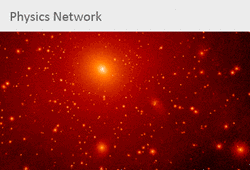Adaptively balanced parallel MLMC solver for acoustic wave propagation with log-normal coefficients; Jonas Sukys (ETH Zurich), Siddhartha Mishra (ETH Zurich), Christoph Schwab (ETH Zurich)
We consider multi-dimensional acoustic wave equation with random log-normally distributed coefficients, exhibiting anisotropically correlated layered structures that are characteristic to geological subsurface data observed by seismic imaging or direct measurements.
As the acoustic wave equation is a linear system of conservation laws, the existence and uniqueness of the weak solutions as well as the estimates for the space-time and statistical regularity of the solution are established. For uncertainty quantification in the solutions of multi-dimensional systems of stochastic conservation laws, such as Euler, ideal magnetohydrodynamics (MHD), and shallow water equations, the Multi-Level Monte Carlo Finite Volume Methods (MLMC-FVM) were shown to be robust and provide optimal error convergence rates. We generalize MLMC-FVM to linear systems of conservation laws with random fluxes, in particular, to acoustic wave equation with random coefficients, and provide error bounds for mean square error of MLMC-FVM vs. expected computational work, which are asymptotically of the same order as error bounds for a single, deterministic FVM solve.
Log-normally distributed material coefficients can be efficiently generated using spectral method and Fast Fourier Transform (FFT). In order to couple the spectral FFT generator with the MLMC framework, an upscaling technique to generate identical (up to discretization error) realizations on several different mesh resolutions is developed. The MLMC-FVM algorithm, together with generation of the coefficients using FFT, is parallelized using a recently developed adaptive load balancing algorithm, which takes into account the sample path dependent complexity of the underlying deterministic solver, arising from the random CFL-restricted time step size due to the random wave speed. Adaptive load balancing is implemented in code ALSVID-UQ and is shown to scale up to 40 000 cores. Numerical experiments for uncertainty quantification in acoustic wave scattering in two and three dimensions are presented

